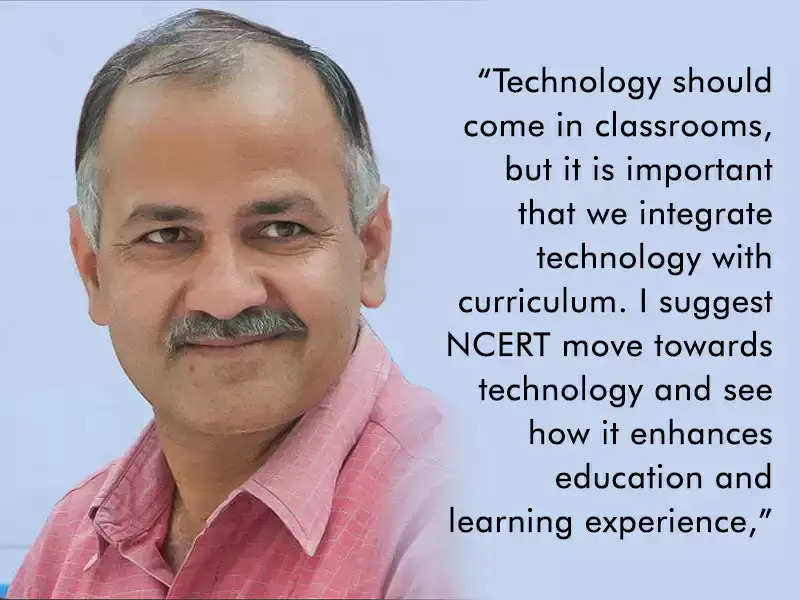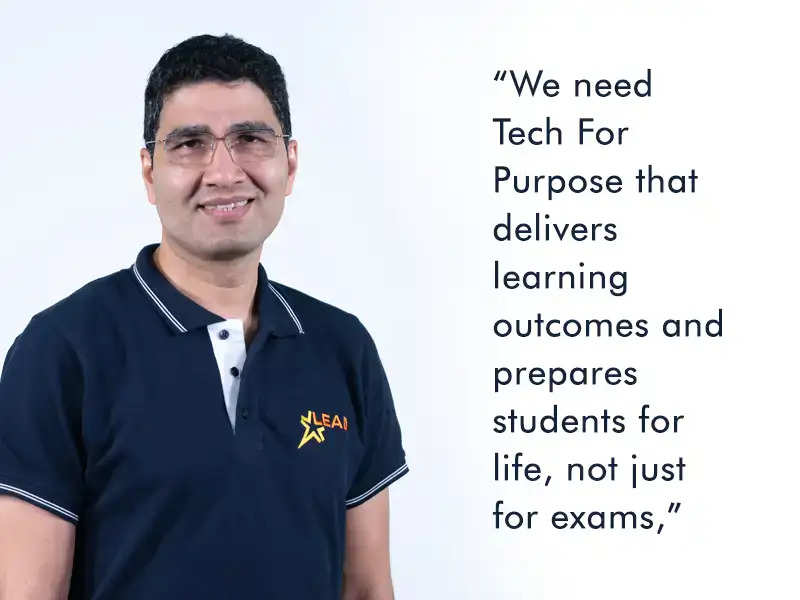Tech for Purpose - The changing pedagogy of classroom education
In the last two years, technology introduction has changed the way classrooms are transacted and how students are evaluated. As students are returning back to their classrooms, schools must carefully consider the long-term role of technology and must adapt technology with their class curriculum.

Manish Sisodia, Deputy Chief Minister, Delhi
Leveraging technology for quality education
Manish Sisodia, Deputy Chief Minister, Delhi stated that the development of the education sector cannot be achieved without technology. “The pandemic has been a blessing in disguise for the education sector because schools were forced to use technology.” he said.
International standards of education accommodate local needs and atmosphere and there was a need to decode the needs of the Indian schools. “Technology will help us achieve a holistic development of our students,” Sisodia explained.

Sumeet Mehta, Co-founder, and Chief Executive Officer, LEAD
Sumeet Mehta, co-founder and chief executive officer, LEAD stated that School EdTech can truly empower teachers and can help them with the tools and methods to teach well.
“It can enable principals and school administrators to run their schools as world class institutions, and for the child it can open up access to learning beyond their local resources,” he informed.
Vrinda Sarup, Former Education Secretary, Government of India
Concept of schools still important
Former Education Secretary in the Government of India, Vrinda Sarup opined that though technology is a great enabler, the concept of physical school is needed to help the child grow. “There are social values like sharing, equality or honesty or even skills, like dance, music or art, a child learns only in the school atmosphere,” she explained.
Sarup elaborated that technology introduction has changed the old pedagogy of the classrooms, “Even in a government school, technology has zoomed in the classroom and it is equipping the students with the world learning. EdTech will only enhance the child’s ability,” she added.
Narayan Ramaswamy, National Leader- Education and Skill Development, KPMG India
Impact of smartphones
Narayan Ramaswamy, National Leader- Education and Skill Development, KPMG India explained that one of the reasons parents prefer to send students to school rather than opting for homeschooling is to ensure the child’s social development. “If in a village, students from schools suddenly become a part of a much larger world, it would help them in the medium to long term. But now in the short term, we are using the digital only world and using it as a substitute for what we have,” he said explain that it has resulted in students becoming inward driven.
Due to the pandemic, schools were forced to experiment and learnt the use of technology to impart education. Due to which the education using technology and internet has become the order of the day.
Dr. Anil Sahasrabudhe, Chairperson, All India Council for Technical Education
Dr Anil Sahasrabudhe, Chairperson, All India Council for Technical Education stated that the usage of EdTech as an artificial intelligence based personalised learning platform is helping students.
“In a classroom where all students are sitting together, you would not be able to address to the needs of every child. It is here where technology is an enabler,” Dr Sahasrabudhe said.
He informed that looking at where the student is, the technology program will take him on a journey which is shorter or longer, depending on the child’s ability. By making digital technology available to a much wider audience and making it multi-dimensional, either through blended learning or through artificial intelligence to augment it, EdTech is going to be a game changer for the education sector in the future.
Teachers are now beginning to leverage technology to reach out to students in a way that could only have been imagined earlier.
